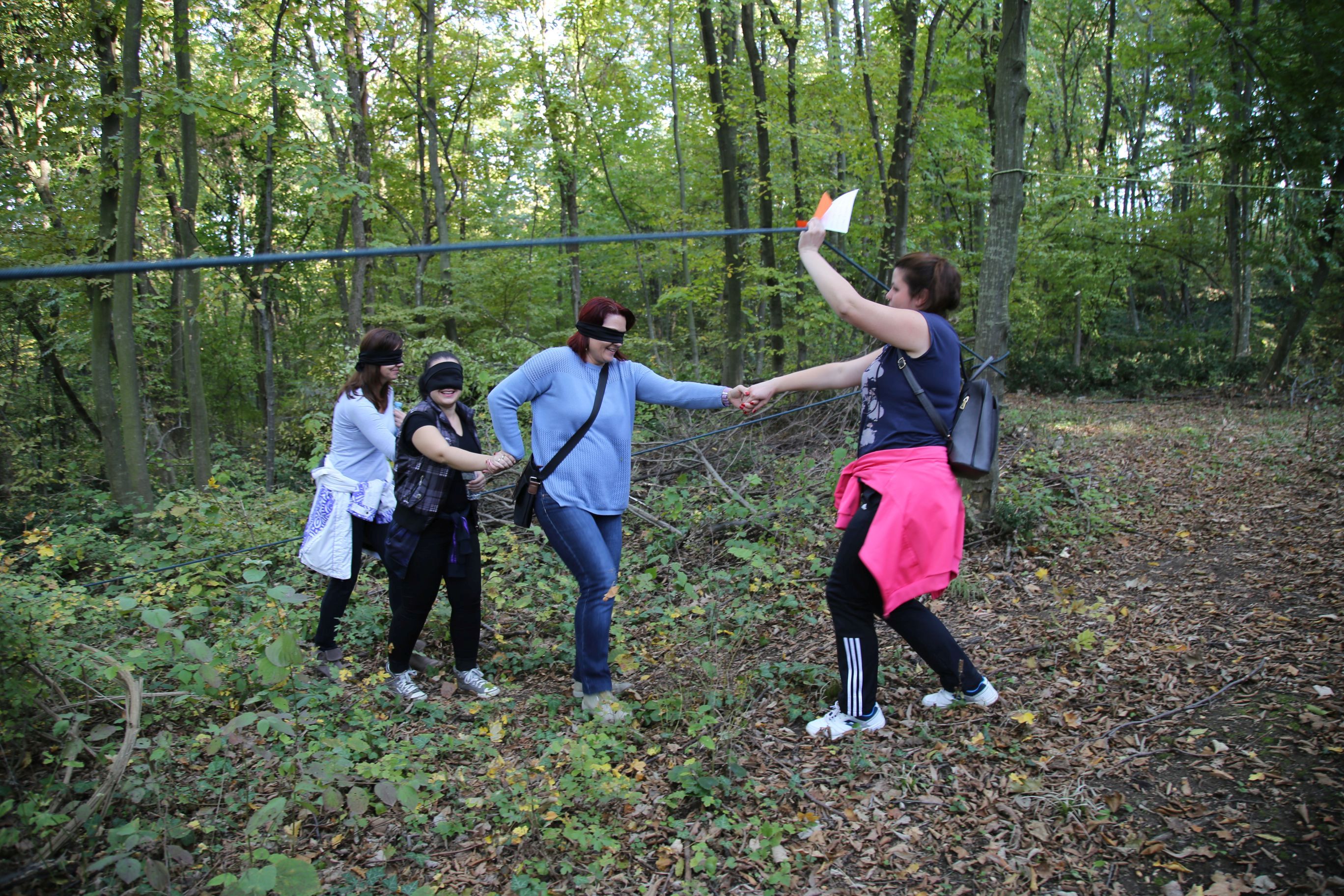

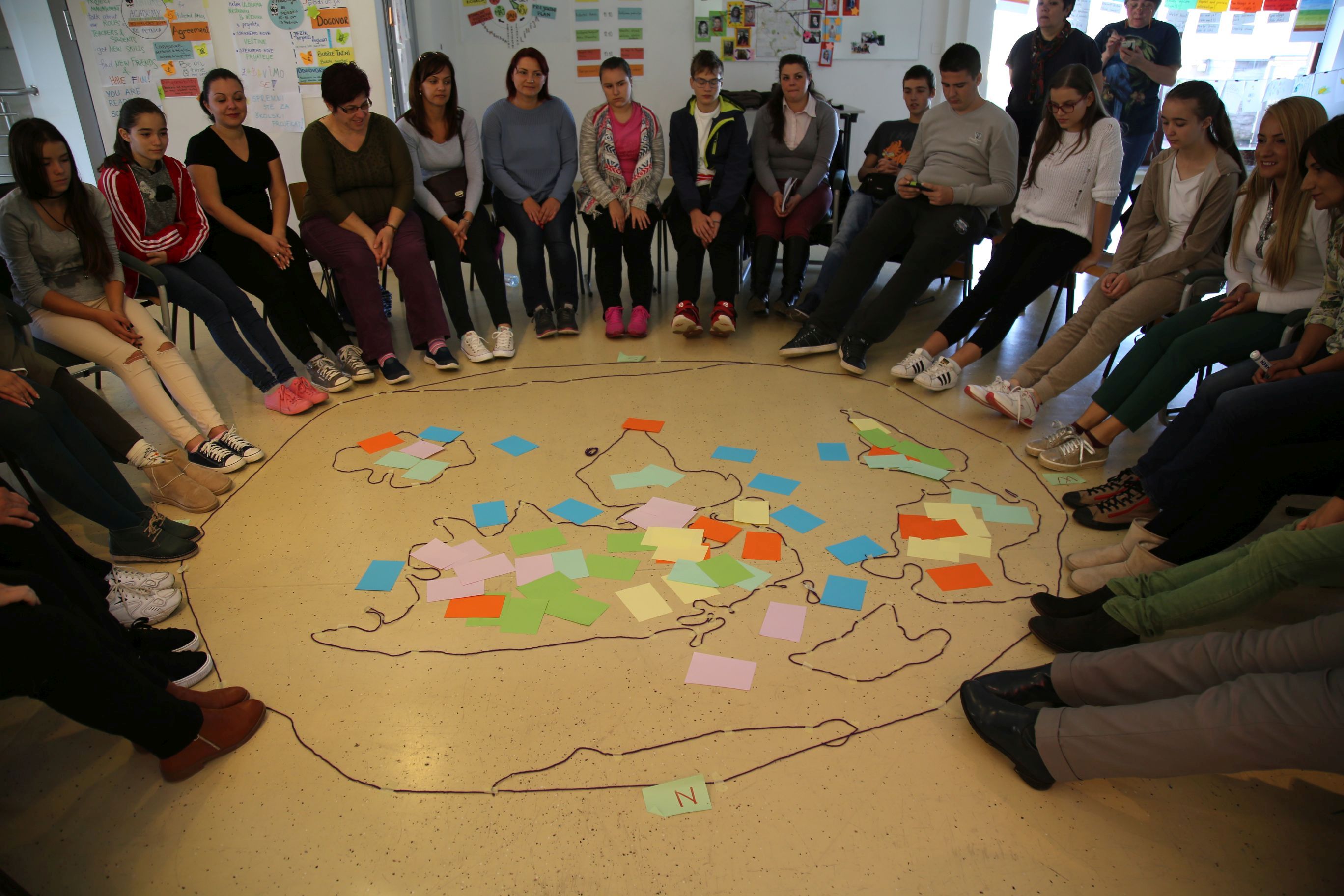
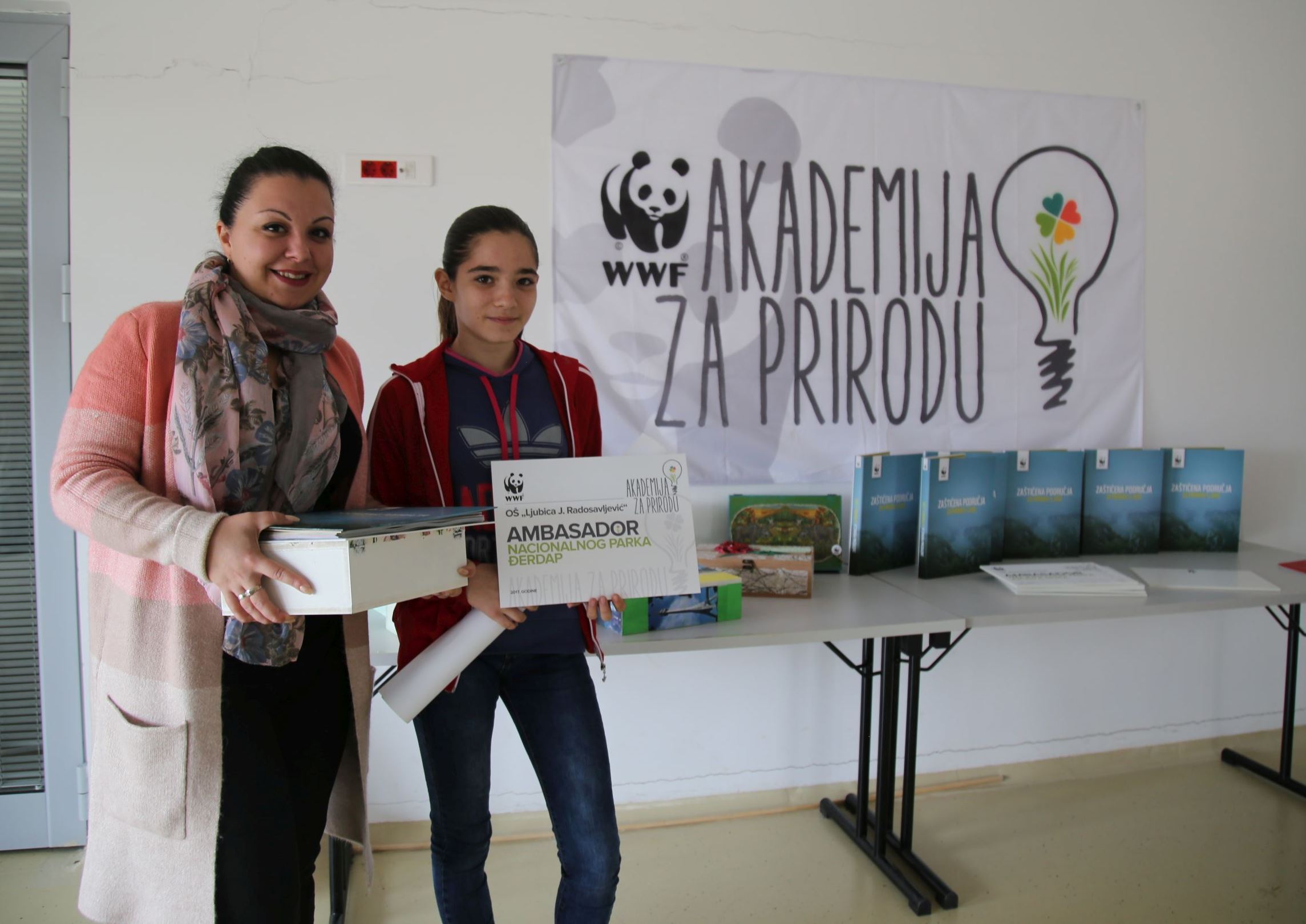
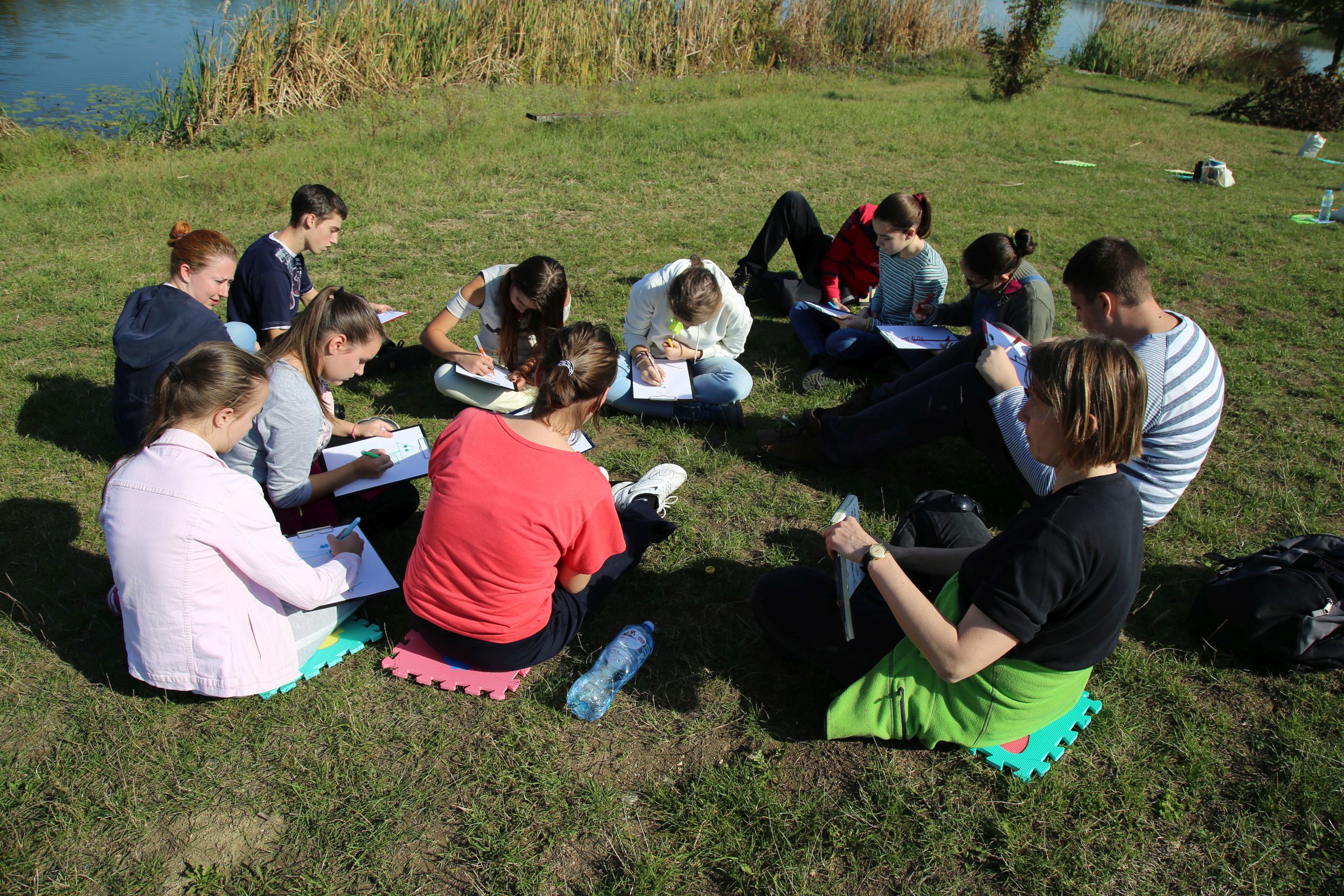
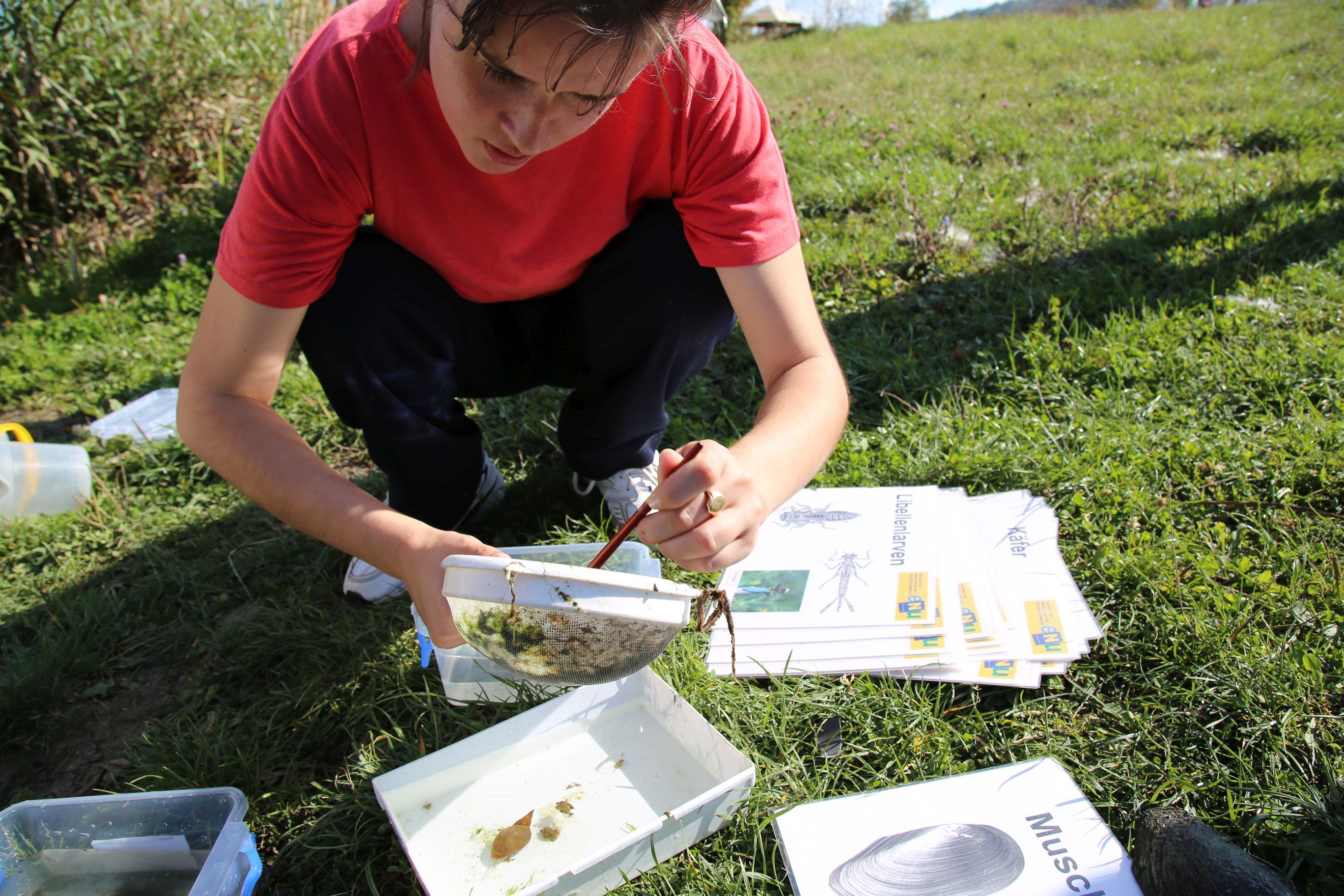
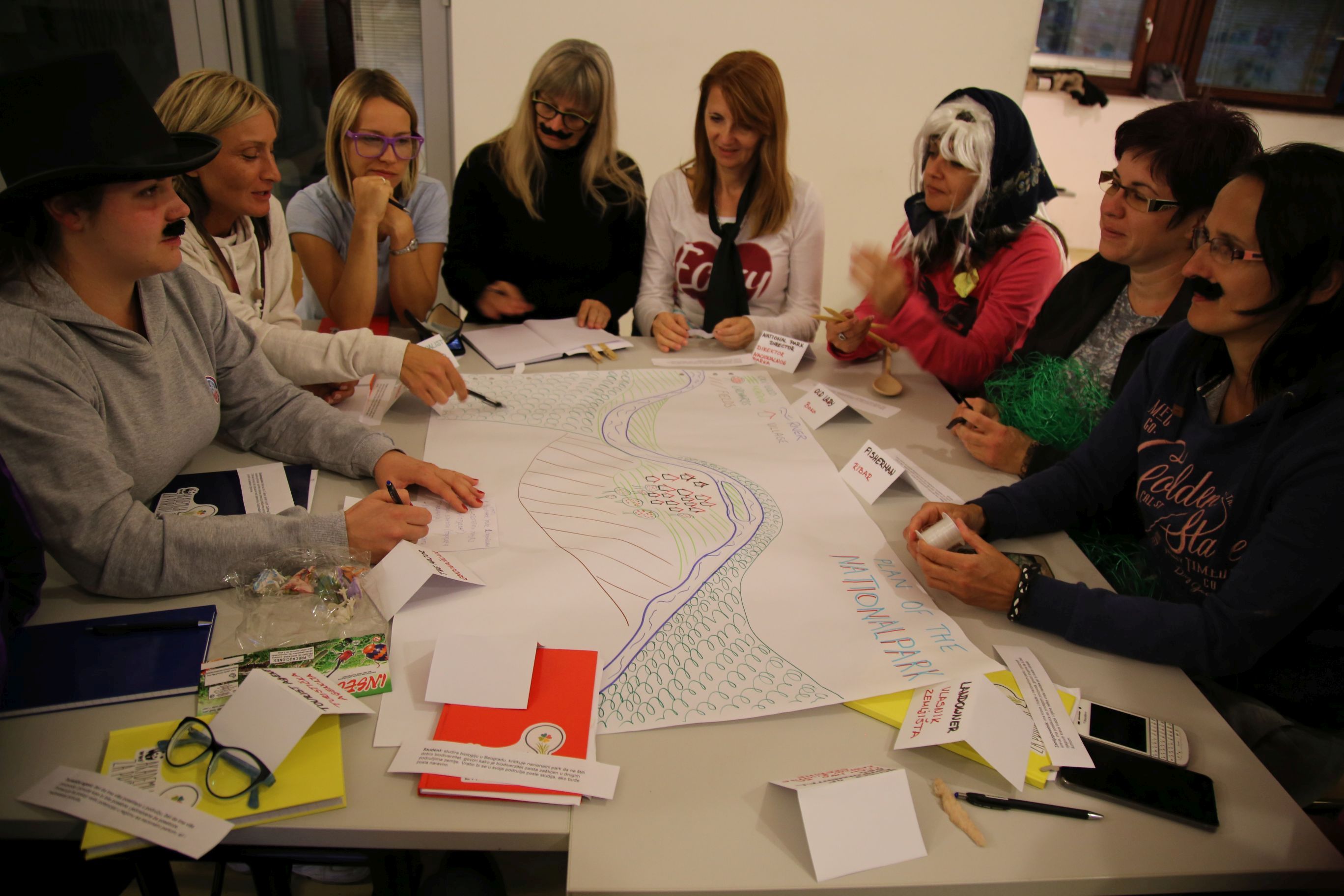
The education program aims to develop key competencies of teachers and their students that lead to active citizenship for nature conservation. Each school participating in the program implements an environmental project in cooperation with the management of the protected area in their close proximity.
The education program is divided into two phases:
1. Developing the WWF Nature Academy guidebook with 5 chapters: protected areas, ecological footprint, active civic participation, project management, and working with the media.
2. Five days training for teachers and students using the previously developed WWF Academy guidebook. The training has a strong focus on interactive and hands on activities in nature. After the training schools become Ambassadors for the protected area they live close to. Each school receives an Ambassador plaque and an “Explorer toolkit” with various didactical tools and materials, including the WWF Nature Academy guidebook.
Institutional:
1. Protected areas have a person responsible for education.
2. Interested schools willing to participate in an 8 months long programme.
3. Good cooperation between project partners – regular communication, joint development of the program and joint implementation of activities.
Internal capacities of implementing organization:
1. Experience in education and high motivation.
2. Good facilitation, moderation and logistical skills of project coordinator.
3. Dedicate a lot of time for traveling to protected areas and schools.
- It is important that each Protected area has a dedicated contact person for educational programs.
- If PAs don’t have trained staff for implementing educational activities, find or organize additional trainings for them (nature interpretation, outdoor activities, experiential learning).
- Include 2 teachers from each ambassador school as it can easily happen that one of them is absent for a longer period. This ensures a continuous project implementation. If possible include teachers from lower and higher grades.
- Organize a visit of the Ambassador school project team to the PA immediately after the training in order to start the cooperation and develop the project activities together.
- Organise mandatory visits of project coordinator to each Ambassador school during the academic year.
- Involve students from lower grades in order to keep them actively involved in the school for several years – this encourages peer education and develops leadership skills.